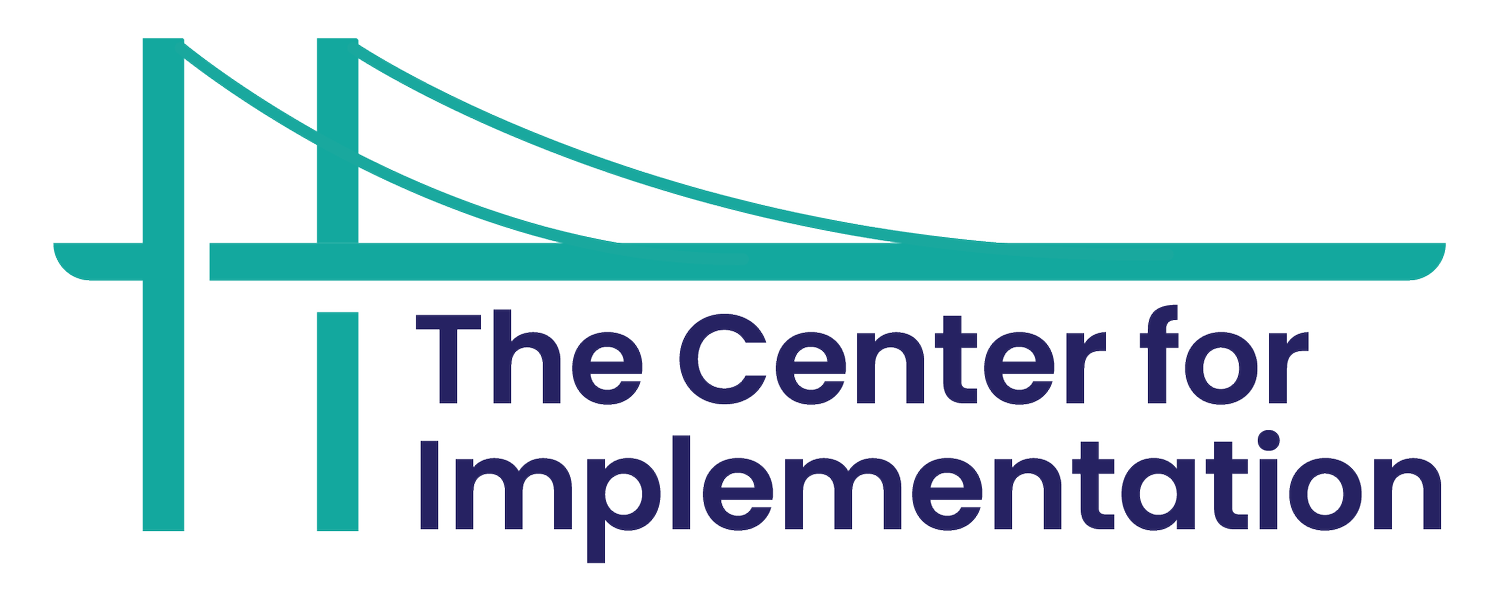An Expanding Implementation Support Workforce: Momentum and Challenges
By Dr. Julia E. Moore, Executive Director
6-min read
Trained and experienced implementation support professionals are an essential component of implementation initiatives that can help teams and settings successfully achieve positive outcomes. Just like it is important to have topic area expertise (for example, people who understand the science of HIV prevention, cancer, treatment, social emotional learning skills in children), it is also essential for people on initiatives that are planning for large scale change to have team members with a good understanding of the science behind creating individual, organizational, and systems change.
Luckily, it seems that others feel the same way we do about the need for a cadre of implementation support practitioners. There is a growing momentum related to building the implementation support workforce like we have never seen before. New implementation support job postings are available every week across various fields, industries, topic areas, and countries. Excitingly, many organizations are hiring multiple implementation support professionals, meaning that people can work collaboratively in teams to lead and support change, rather than feeling isolated and alone. Additionally, we have seen multiple funders providing funding not only for implementation initiatives, but also for support organizations to provide implementation and other types of supports to funded projects.
We are excited and inspired by this growing recognition of the importance of implementation support practitioners. In some cases, not only are these implementation support practitioners being hired, but they are being set up as a support system for multiple change initiatives. In our experience, supporting the implementation of multiple programs across topic areas in different settings is one of the things that we believe has most deepened our knowledge, understanding, and skills in supporting change. The idea that people are not only hiring professionals, but thinking about them in the context of a larger support structure holds great promise for the future, and potentially creates a sustainable model, so that when individuals move onto new positions, that type of implementation support does not immediately disappear.
A mismatch in the supply and demand of implementation support practitioners
Unfortunately, we are also seeing an environment that is not yet set up for implementation support success. The demand for trained and experienced implementation support practitioners is currently much larger than the existing supply. As a result, many of these organizations looking to bring on new staff members to lead implementation work are left hiring people without training and experience in implementation into implementation support roles.
People are then hoping and believing that on-the-job training will equip people with what they need to effectively support implementation. But this approach devalues the complexity of implementation and the skills and competencies required to effectively support implementation (for example those developed by the Collaborative for Implementation Practice and colleagues). Imagine hiring a qualitative lead, who had never taken a course on qualitative methods or conducted a single interview. Imagine hiring a biostatistician who had taking one intro level class on stats. Implementation support practitioners need relational skills (e.g., the ability to form trusting relationships and navigate power dynamics), technical skills (e.g., being able to select change strategies that address barriers and facilitators), and experience.
Providing implementation support is a science and an art. It is backed by competencies and requires extensive knowledge of implementation, theories, models, and frameworks. These professionals need to be able to fulfill multiple roles simultaneously. We love this image (tweeted by Helen Bevan) depicting the different kinds of roles that an implementation support specialist transforms into throughout their day.
Supporting the implementation support practitioner
Because implementation support practitioners are providing others implementation support, people do not always think about the fact that they also need to be supported to effectively do their jobs. Navigating the complexities of implementation, power dynamics, existing relationships, differing values, beliefs, and mental models is a challenging and often isolating role. Implementation support practitioners who feel supported are more likely to provide effective support and potentially to stay in the role longer, particularly at a time when there is such high demand for trained and experienced implementation support practitioners. We believe the approaches that implementation support practitioners use to support others can also be used to support them; the Evidence-based system for implementation supports (EBSIS) framework describes that for people to be supported in their implementation roles, they need the right tools, training and technical assistance, and would benefit from some measure of implementation quality to know they are doing a good job.
We know that implementation support is an incredibly important piece of the puzzle, particularly for large scale change. By investing in the implementation support workforce and ensuring they have the right skills and supports in place, we can create sustainable models for change and ultimately achieve successful outcomes in large scale change initiatives.
This article was featured in our monthly Implementation in Action bulletin! Want to receive our next issue? Subscribe here.


